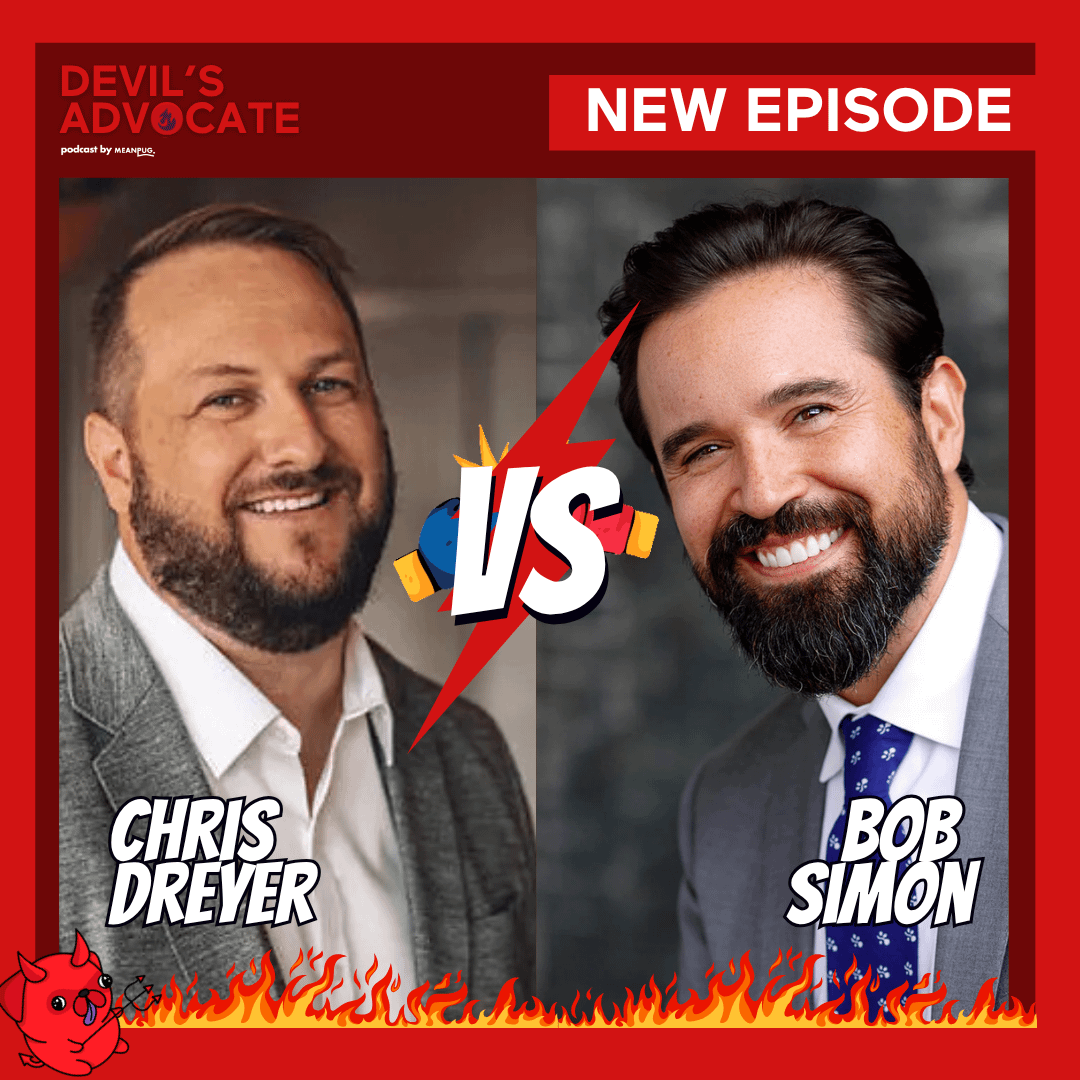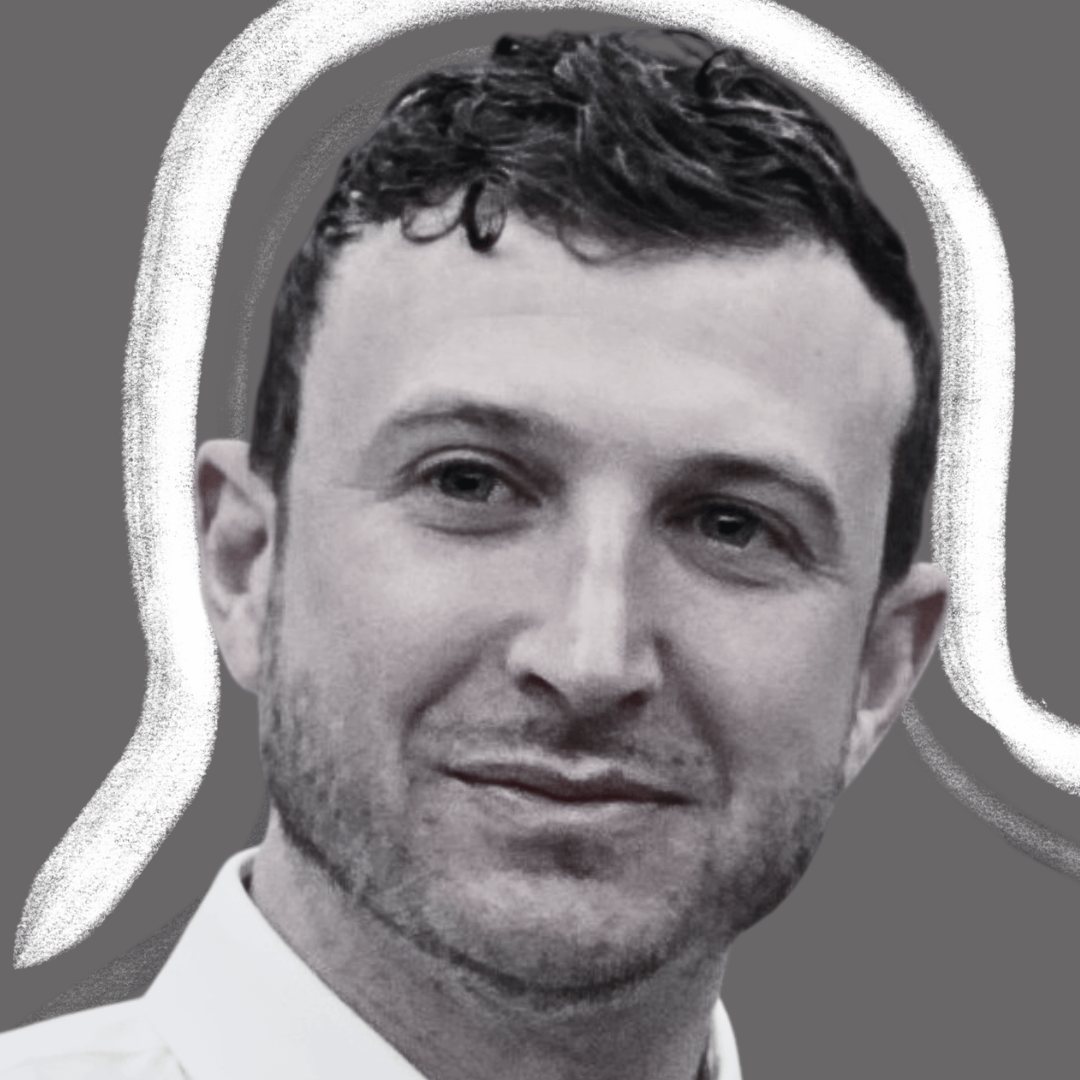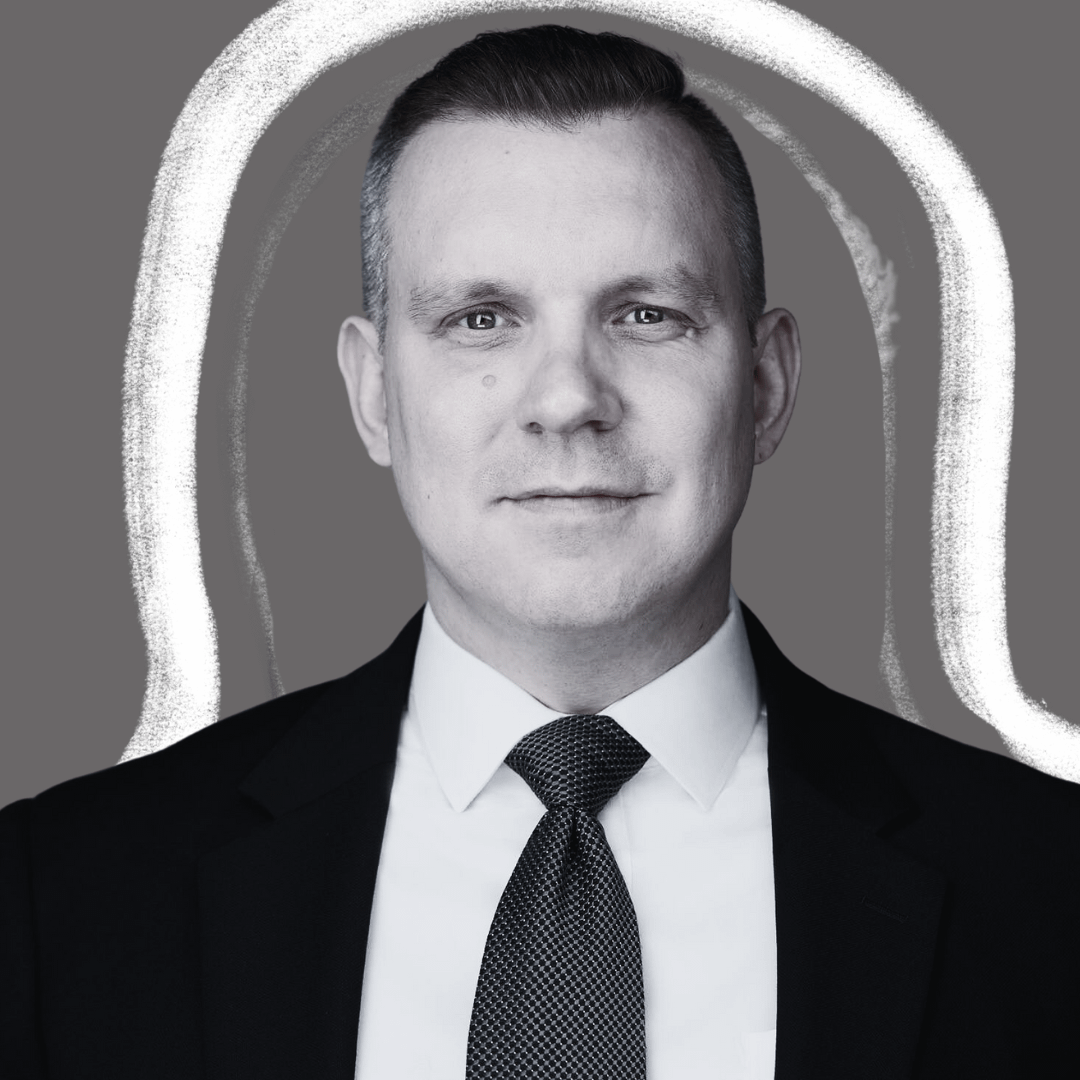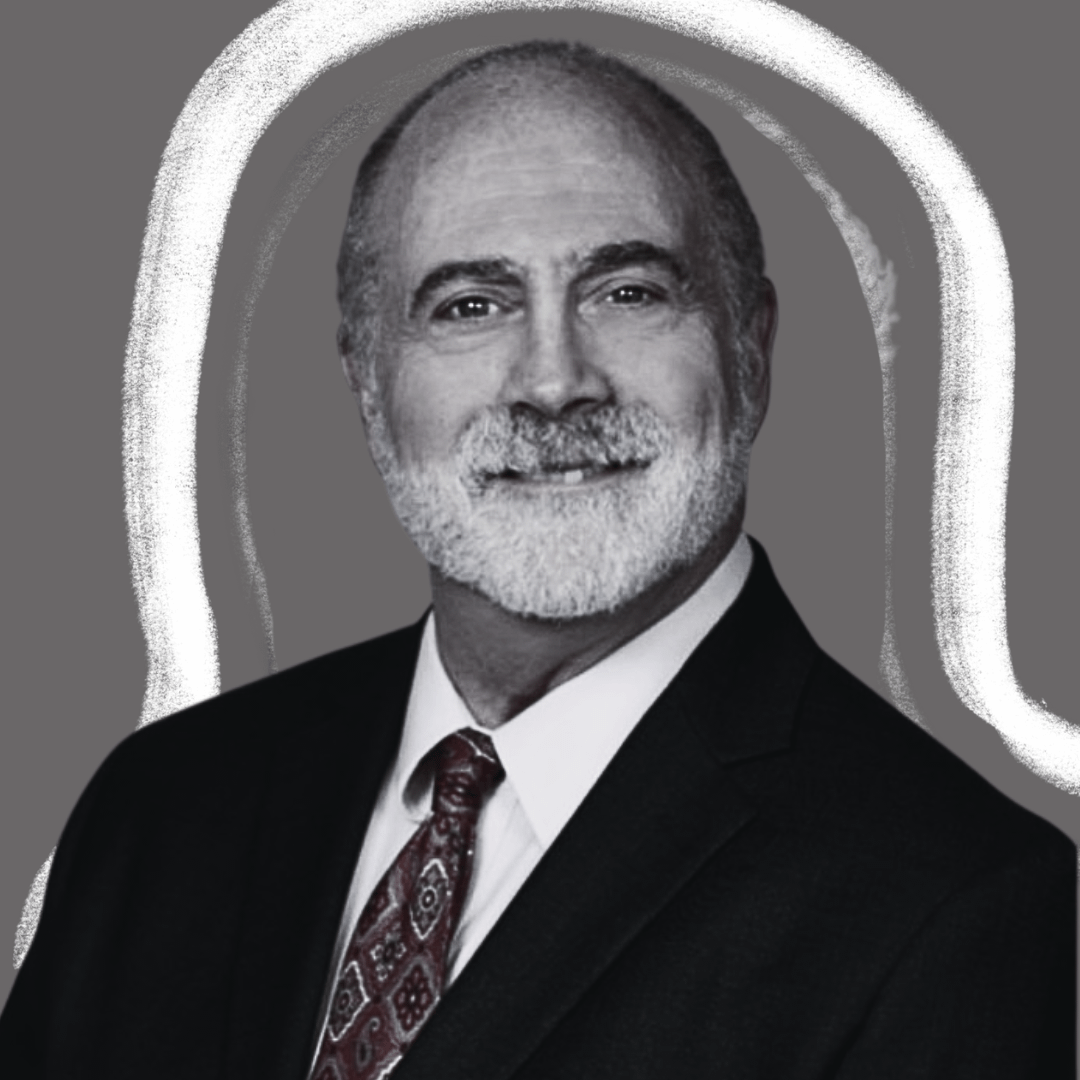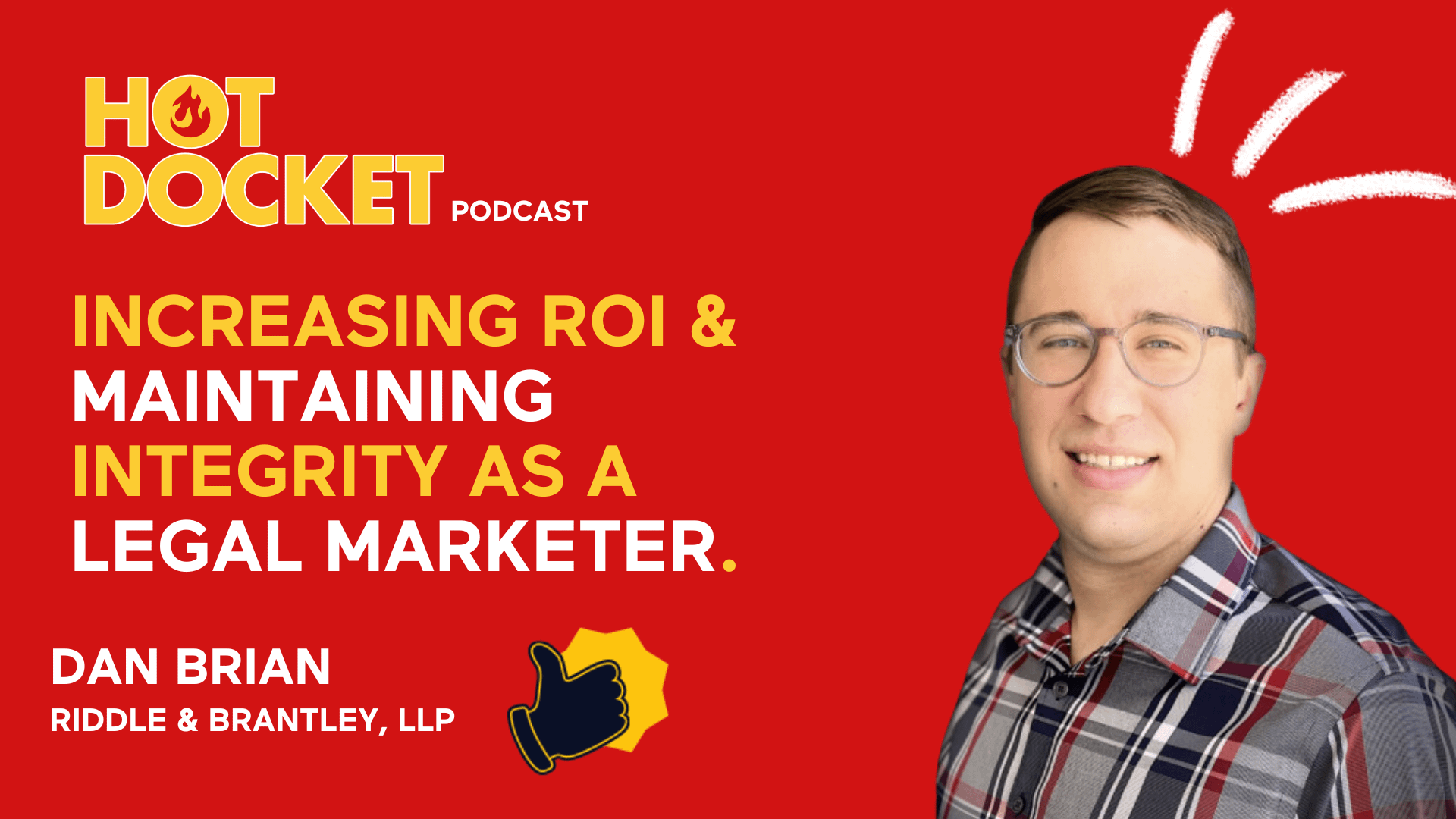
Episode Overview
Ever wonder what a day in the life of a marketing director at a personal injury law firm is like? Are you a marketing director looking for budgeting advice or productivity hacks? Or perhaps you’re a lawyer wondering how to make your marketing director’s job easier… Well, you’re about to learn it all!
As you know, digital marketing directors who work in All have very important responsibilities. They coordinate and collaborate with a wide range of people and agencies and have to constantly stay organized, efficient, and ahead of market trends. They also have to create content that’s not going to get them into trouble with the bar…
Today, we’re joined by the great Dan Brian, Director of Digital Marketing at Riddle & Brantley, a personal injury law firm. Dan’s 20 years of marketing experience makes him the perfect guest to talk about what a day in the life looks like as a Digital Marketing Director at a law firm.
Stay tuned to the end for our “Sleazy or Not Sleazy” rapid fire round. You won’t want to miss Dan’s answers!
Episode Links
Want to hear more from elite lawyers and industry-leading marketers?
Follow us on Social Media for more
Episode Topics
- Driving Success: Unveiling the role of a digital marketing director at a personal injury law firm
- Leading the Charge: Insights into the responsibilities of an in-house marketing director in the legal field
- Tools of the Trade: Essential project management and AI tools crucial for Dan’s daily operations
- Making the Right Choice: Deciding between hiring a marketing contractor, agency, or full-time in-house marketer
- Facilitating Collaboration: Tips for attorneys to collaborate effectively with their marketing director
- Smart Budgeting: Strategies to optimize your marketing budget for maximum returns and stability
- Empowering Connections: The journey behind Marketing for Justice, Dan’s transformative membership group
- Learn from Experience: Key advice for legal marketers based on Dan’s insights and experiences
Key Takeaways
- Explore the power of AI to boost productivity and simplify content creation processes, enhancing efficiency and output in marketing endeavors.
- Uncover the importance of striking a balance between data-driven decision-making and creative innovation in marketing strategies, maximizing effectiveness and adaptability.
- Learn the value of allocating resources for experimental campaigns, even with uncertain ROI, to gain valuable insights and drive future success in marketing initiatives.
- Understand the necessity of staying updated on legal requirements and industry regulations, especially in the law sector, to ensure compliance and avoid potential legal issues.
Episode Transcript
[00:00:00] Andrew Nasrinpay:
PPC ads.
[00:00:03] Dan Brian:
Not sleazy.
[00:00:03] Bobby Steinbach:
Social ads.
[00:00:04] Dan Brian:
Mostly sleazy.
[00:00:06] Andrew Nasrinpay:
Lead referral services.
[00:00:07] Dan Brian:
Sleazy. Sleazy.
[00:00:09] Dan Brian:
Exclamation point. Sleazy.
[00:00:11] Bobby Steinbach:
Sleaziest. Welcome to Hot Docket. The show where we talk about winning marketing
strategies that have built the most successful All.
[00:00:17] Andrew Nasrinpay:
Join us every two weeks for the latest trends and tactics to grow your law firm.
[00:00:23] Bobby Steinbach:
Hey everybody and welcome to the Hot Docket podcast. Today the theme is going to
be day in the life of a personal injury. Marketing director, like a marketing
director at a personal injury law firm. So I’m really excited to discuss
everything. This is like kind of what we were at Morgan and Morgan. So
it’s going to be super interesting for me.
[00:00:43] Andrew Nasrinpay:
So I think, uh, there are a lot of things to think about when you’re
working in house where you’ve got your everyday tasks that you know you
need to get done. And then you have the things that are going to accomplish the
goals you want long term. And sometimes those two things get in the way of each
other where.
[00:00:58] Andrew Nasrinpay:
The things that are probably going to be most beneficial longterm oftentimes get
kicked down the road and you have a lot of day to day things like managing
employees and making sure requests from attorneys or different departments
within,
[00:01:11] Bobby Steinbach:
uh, A law firm. Yeah. Making a lot of people happy all at the same time.
[00:01:16] Bobby Steinbach:
So with that, I’m going to introduce today’s guest. Uh, we have Dan
Bryan here with us, marketing director of Riddle Brantley, a personal injury law
firm in North Carolina, and proud to call him one of my friends. So, you know,
we’ve probably known each other now for what, four years? We got started
together.
[00:01:33] Bobby Steinbach:
Yeah. Yeah. Just as by virtue of us starting the agency, you being in the space
got connected and, um, had a lot of good back and forths.
[00:01:46] Bobby Steinbach:
So I want to just start by. you know, kicking it over to you and telling us a
little bit about what it means to be a marketing coordinator at a personal
injury law firm, or in your case, marketing director at a personal injury law
firm.
[00:01:58] Dan Brian:
It’s an interesting question. And it’s, it’s funny because,
um, I was not necessarily prepared to talk about a day in the life today, but I,
I suppose that’s really fitting because, um, being the marketing director
at a personal injury firm in particular, I think It’s fast paced.
[00:02:14] Dan Brian:
And, uh, you know, I sometimes I don’t know how other people are, but I
sometimes find myself in a perpetual shit storm. Um, and don’t necessarily
know what’s happening. Um, but I try to stay on top of it. Got a lot of
good tools out there that can keep me organized. And that’s a big, big
part of it. I would say, um, you know, you asked about kind of day in the life.
[00:02:35] Dan Brian:
What does it mean? And, uh, for me, It’s using a lot of software, a lot of
tools to keep myself organized, keep myself on track. And, you know, to, to your
point earlier, um, it’s really about keeping your eye on the ball because
it really, really is easy to get lost in the day to day and take your eye off,
um, sort of the longterm vision and what’s going to really move the
needle.
[00:02:58] Dan Brian:
Um, in the future. And so I can give you example after example of times
that’s happened. And, you know, you got to kind of reel yourself back in.
And it’s obviously important to put out the fires when they come up, but,
uh, you really, really need to be paying attention to, uh, 3 months, 6 months, a
year down the road and kind of be anticipating the challenges you’re going
to be facing and how you’re going to create solutions for those.
[00:03:23] Dan Brian:
So, um, This is a whole, this is a whole mess of answering your question. Um,
it’s basically, um, I think a combination of using the right tools, using
the right technology. It’s keeping yourself organized. Um, and you know,
as we know, personal injury, any real, uh, legal field, um, in general, when
you’re working in marketing, you’re coordinating with a lot of
different people.
[00:03:46] Dan Brian:
So I’m managing agencies. A lot of my time is spent managing agencies. Um,
or maybe not managing is the right word, but coordinating with them. Um,
coordinating with agencies, um, you know, spending the time to meet with them
and stay in contact. I like to be really proactive when it comes to agency
relationships, simply because, um, I do firmly believe it’s not just
bullshit.
[00:04:08] Dan Brian:
I think it’s a partnership and, and it works best when it’s run that
way. And then in addition to that, you’ve got, you know, in my particular
case, uh, I’m, I’m mostly a one man band, you know, within our firm.
But I’m also working with, you know, a ton of different freelancers, a ton
of different contractors and vendors that we’re using for, you know, maybe
it’s live chat or maybe we’re using them for content development or,
uh, web dev or whatever it might be, um, managing those relationships as, as
best I can.
[00:04:37] Dan Brian:
So that is a very long winded answer that I think I probably opened up a
Pandora’s box of. Possibilities on, but, uh, I hope that maybe gives you
and your listeners. Oh, it’s good.
[00:04:48] Bobby Steinbach:
And I’d love to talk about tools. I think we’d be lost without
asana, like for us. That’s, that’s like front and center tool we
can’t live without.
[00:04:56] Bobby Steinbach:
What are like your top three, let’s say, favorite tools or tools you
can’t live without?
[00:05:00] Dan Brian:
I love Asana, by the way. Um, I used that in a previous life and, and, and to be
quite honest, I think it’s my favorite of the task management, project
management tools out there. Um, I kind of wish that I would implement that.
[00:05:12] Dan Brian:
You know, in my day to day, and maybe I should, um, but I use click up, uh, very
effective tool as well. Kind of similarly in line with us on in terms of project
management. Um, I have a little bit of experience working with teams or
teamwork. I don’t even remember what it’s called, but I don’t
use that anymore.
[00:05:28] Dan Brian:
But, um. I really like ClickUp. It’s a little bit overly complicated in my
view. It’s, it’s, it’s not necessarily the most streamlined
tool out there. So I think if you’re just getting your feet wet, um, in
that project management software space, it may not be the right one for you. Um,
but I really like it.
[00:05:46] Dan Brian:
And then. To be quite honest, you can do, um, boards and cards within all of
these tools. Um, but I really liked the simplicity of Trello when it comes to
managing freelancers, particularly in content development. It’s really,
really simple to onboard, uh, new employees and new contractors too, and they
can pick it up really quick if they haven’t used it before.
[00:06:08] Dan Brian:
And it’s just a great way of visualizing where content is in, You know, in
the process and in the, in the funnel. So, um, I really liked those as far as
keeping myself on task, you know, as far as, as other tools go, um, my
favorites, uh, I’m getting away from project management now, but obviously
I’m using chat GPT a ton.
[00:06:27] Dan Brian:
Uh, now I’m trying to leverage as many AI tools as I possibly can, simply
because. I think it’s important to do anyhow, but simply because I am,
like I said, for the most part, a one man band in our shop. And, uh, it is just,
it’s been a game changer in terms of increasing my productivity and
increasing my output and allowing us to do things that previously only a, um,
midsize team would, would probably be capable of doing effectively.
[00:06:53] Dan Brian:
Can you give us some examples of how you’re
[00:06:54] Andrew Nasrinpay:
using chat?
[00:06:56] Dan Brian:
Yeah, so we use it for content development first and foremost. Um, you know, so,
um, I don’t use it to, uh, write blog posts or web pages for me. I think
that’s a common mistake. And I think that’s going to get you into a
lot of, um, tricky situations. Um, To put it one way, um, but I use it to inform
the content development that we’re doing.
[00:07:16] Dan Brian:
So I may use it to create outlines. I may use it to create bulleted lists to
kind of guide our internal content development processes. Um, always, always
fact check, uh, chat GPT has, you know, what they call hallucinations and
sometimes make shit up. And, uh, it makes it a little bit challenging.
I’ve had it spit out quotes, uh, from supposedly famous people that
don’t exist.
[00:07:39] Dan Brian:
Neither the quote nor the person. Um, I’ve learned a lot about, um,
imaginary people with chat GPT. Um, but yeah, I’m, I’m using it for
content development first and foremost. Um, I also combine chat GPT though,
with, you know, a number of other AI powered tools and, you know, Bobby and I
have talked about that in a, in a separate life, um, on separate podcasts or
separate workshops.
[00:08:02] Dan Brian:
And, um, he actually is the one that introduced me to mid journey, uh, for, you
know, AI generated images. I think, I think Bobby, you introduced me to 11 labs,
which is just mind blowing. And, um, I haven’t so much used that one.
That’s an audio one, uh, by the way, for listeners, but I haven’t so
much used that one for the firm, but I play around with it in my, uh, my other
life.
[00:08:25] Dan Brian:
Um, and that’s, that’s pretty cool. And then for video content,
I’ve actually found a lot of, uh, really AI, including a really nice tool
called Lumen five. I definitely recommend it. Particularly if your firm is like
most personal injury firms, creating a lot of, you know, explainer type videos.
Um, it’s really good for spitting those out.
[00:08:46] Dan Brian:
You can incorporate, you know, the kind of talking head, you know, attorney
shots and that into there as well. But it’s really, really good for sort
of, uh, text on visual explainer videos and that sort of thing has a ton of
royalty free. Video images, um, and, and music and sound effects. And
that’s really cool.
[00:09:04] Dan Brian:
Um, and it will actually, um, pretty well, I mean, none of these tools are
flawless, but it will pretty well convert, you know, a written blog post or
other written content into, um, a pretty good outline and a pretty good, um,
rough product,
[00:09:20] Bobby Steinbach:
uh, to start with, you know, it kills me with like, um, I think it’s a
very cool use case with Lumen, but.
[00:09:26] Bobby Steinbach:
What kills me and I’m sure it’s going to happen as we go forward is
like on YouTube, I’m getting blasted by that 11 labs voice. That’s
standard AI voice. That’s like the default where it’s like, were you
injured in a car accident? Like that guy with the gravel? Yeah, I’m
getting hit by that nonstop in like a.
[00:09:46] Bobby Steinbach:
All these, um, like short clip style videos because the people doing the
arbitrage type of work are seeing how they can cut costs, reduce their
production costs significantly, and have something that is high quality. So, I
think we’re going to see that same thing proliferate through everything,
like you’re going to see it on more legal sites, you’re going to see
it everywhere, and I wonder what that means.
[00:10:08] Bobby Steinbach:
For producing high quality content going forward.
[00:10:11] Dan Brian:
I think you’re right. And I’m proud to say we don’t, we
don’t do that. I don’t actually use a lot of other than, you know,
with 11 labs where, you know, you’re able to sort of clone a voice and
create something that’s, that’s really original and authentic. I
don’t really use a lot of the AI generated voice.
[00:10:27] Dan Brian:
Certainly don’t do it. Um, for, for anything like if you’ve been
injured in a car accident. Yeah, I don’t, I don’t, I don’t do
that. Um, but I do, I agree with you. I see more and more of it out there, and I
think there’s going to come a point at which, um, it’s going to be
really easy to separate the wheat from the chaff, so to speak, where
you’re going to be able to, uh, really notice, for one, it’s going
to break through the noise, and you’re also going to appreciate the, uh,
content that’s more professionally produced and, and polished, uh, just
because everyone’s going to be using this as a workaround.
[00:10:57] Dan Brian:
And, you know, I certainly do, but I like to think we do it a little bit. Better
than others. Um, but it’s going to be, it’s, it’s going to be,
it’s the wild west out there right now. And it’s going to be very
easy. I think long term to separate out those who, you know, invest some time in
it, um, in addition to leveraging the AI tools and those that simply rely on it
solely.
[00:11:17] Dan Brian:
I just, I think that’s a huge mistake.
[00:11:18] Andrew Nasrinpay:
The tooling is very cool. It brings a lot of efficiency when you start to scale
your team. I thought it was really interesting that you’ve made the
decision to keep your team lean. and use a lot of agencies, contractors,
vendors. Can you go about how that process works in your mind when you choose to
partner with an agency, when you choose to use a contractor, when you decide,
this is a great person, I need to bring on a full time role.
[00:11:45] Andrew Nasrinpay:
Can you go through a little bit about the process of how you think about those
different roles and what’s worked for you and maybe what hasn’t
worked to kind of give a learning lesson to other folks? Thanks.
[00:11:54] Dan Brian:
Yeah, sure. So as far as the agency question goes, um, I’m, I’m
fortunate in that I work for a midsize firm.
[00:12:01] Dan Brian:
We, we handle cases statewide. We also do mass towards nationwide. Um, and so we
have, you know, it’s interesting. We’re a small team. I’m a
small team for that matter. Um, but we do have a significant budget that
we’re able to put toward. Uh, agencies, um, and outside help. And so
that’s, that’s obviously, you know, you want to talk about
privilege.
[00:12:22] Dan Brian:
I’m a privileged marketer. Um, so, so that’s a starting point. So
it’s not necessarily feasible for everyone to lean on agencies in the way
that our firm does, but at the same time. I think part of being a marketing
coordinator, part of being a marketing director, uh, in my case, um, a director
really of agencies and really of, um, contractors and that sort of thing.
[00:12:44] Dan Brian:
I don’t have, you know, really the internal team that some other folks
with my same title do. But I think part of that is really being able to
recognize your own limitations. And so, yeah, I’ve been doing digital for.
20 years or so. God, it’s crazy. Um, I’ve been doing it for a long
time, not necessarily all in legal.
[00:13:05] Dan Brian:
I’ve done that for about five years now, but I’ve been doing it for
a long time, but I’m also I hope a little bit, you know, sophisticated
enough to understand my weaknesses and my, my blind spots. And so for me, um,
that’s some of the more technical work. I’m, I’m more of a big
picture strategic thinker. I know that’s sort of my, my MO when it comes
to approaching marketing.
[00:13:27] Dan Brian:
And so for me, it’s being able to hand off some of the more technical
pieces that I don’t necessarily know very well. And that to be quite
honest are more time consuming. Um, so it frees me up. Uh, to spend time on, you
know, more of the strategy and, and, and the higher level work. And, you know,
for us, that means, um, you know, farming out the SEO, farming out, uh, the PPC,
uh, the management of paid, paid media, uh, those campaigns, um, our managing
partner.
[00:13:56] Dan Brian:
Is more involved in the TV side of things. That’s, that’s one of the
things that he’s really, really good at and really enjoys. And so
he’s pretty much taken the TV off my plate, but it’s another area
where, you know, we’re obviously working with a media company and a media
buyer and that sort of thing.
[00:14:14] Dan Brian:
But I, I’m a firm believer in, in outsourcing the stuff that you
don’t know very well. Um, there’s a lot to be said about learning on
the fly and, uh, problem solving and troubleshooting yourself. And I think
that’s how you grow and get better, but it’s just, it’s,
it’s inefficient. When I started, um, I did try to manage PPC in house.
[00:14:34] Dan Brian:
Um, I, I experimented with keeping SEO in house, relying on a few contractors
for some of the more technical work. But, um, ultimately I find the agencies.
Are above and beyond more organized, um, and able to, to stay on top of things
and stay on top of, um, trends within the industry and within the algorithms and
that sort of thing.
[00:14:54] Dan Brian:
So that’s really, that’s really why I’m relying on agencies as
much as I am or why I’ve chosen to do that. And fortunately, I have a, a
managing partner who is very supportive of that. As far as the freelancers go
and the contractors, um, I’m also a firm believer in, um, you know,
outsourcing the work that doesn’t necessarily require 20 years of, of
digital experience.
[00:15:17] Dan Brian:
I mean, there are certain tasks that, you know, it’s not like it’s
below me. I would never say that. Um, nor do I think it, but it’s just,
you know, work that doesn’t necessarily require. You know, like I said,
the more strategic, you know, thinking and, and that sort of thing, things that
are super, super important.
[00:15:34] Dan Brian:
And I would never trivialize the work that folks are doing for us, but cranking
out a blog post there’s, you know, I, I still do some of that, but
ultimately it’s not the most efficient and effective use of my time.
[00:15:46] Andrew Nasrinpay:
If you could give attorneys one piece of advice to make your job easier, what
would it be?
[00:15:51] Andrew Nasrinpay:
Can I, do I have to stick with one?
[00:15:53] Dan Brian:
No, give us a list. Oh, that’s a great question. But like I said, you
know, I’m in a little bit of an interesting situation because again,
privilege. Um, I, I’m fortunate to work for an organization and, um, an
attorney managing partner that, um, knows enough to be dangerous within
marketing, understands how it works.
[00:16:12] Dan Brian:
I’m not constantly having to quote unquote, justify my existence, which
is. Super helpful. I don’t necessarily have to put together a 10 slide
pitch deck to get buy in for a new initiative. So that’s great as well.
Um, because I, you know, I talked to a lot of other legal marketers and a lot of
PI marketers in particular, and I think there’s, um, there’s an
unfamiliarity, um, among many attorneys out there, not within our firm, but
among many others.
[00:16:41] Dan Brian:
Um, and so it takes a lot more effort. to get traction and to get buy in and to
get budget. And so I don’t have that issue. I guess, um, if I were to, um,
you know, be able to share one piece of advice with attorneys and, and again,
this is not directed at my, my current boss, cause I have a lot of autonomy and
free reign, which I, I so appreciate.
[00:17:03] Dan Brian:
Um, but it would be to. Let your marketing team run with it and fail even, um,
let them give them the, um, the authority in the space to make mistakes and
learn from it because we all know, you guys know, um, I know, I think that nine
times out of 10, a new idea in marketing. It may not crash and burn, but it
might come close or it might not yield the results that you’re really
hoping for.
[00:17:35] Dan Brian:
It’s those ideas though, the one out of tens that, that, you know, really
hit the sweet spot and that takes time and that takes. You know, like I said,
crashing and burning a few times and you have to have an attorney, I think,
overseeing the work that, um, isn’t afraid, uh, to face, um, those
sometimes high budget mistakes and also, um, gives you the grace and the
autonomy that you need to, to make those mistakes and learn from them.
[00:18:05] Dan Brian:
Marketing
[00:18:05] Bobby Steinbach:
is creative and creative things are not guaranteed. That’s why we always
say, and anybody. Who like guarantees you a result in something that’s
marketing related. It has to be bullshit, right? Because there’s going to
be a lot of failure in the process along the way.
[00:18:21] Dan Brian:
Yeah. And the process is messy.
[00:18:23] Dan Brian:
You know, I think a lot of marketers, including myself, we’re data driven.
We’re often very. You know, we often lean towards perfection, or at least
trying to get there. Um, and the reality is that’s, that’s not
always helpful. Um, we’re sometimes shooting ourselves in the foot, and
sometimes, um, sometimes I, I truly believe, and I’m an English major, so
I guess I can get away with, with this, um, but I truly believe that you can be
Too married to data, um, and it, it, it can create a blind spot.
[00:18:52] Dan Brian:
If you become too obsessed with numbers, you may miss an opportunity to truly
experiment and try something radically different that you otherwise would not.
Consider if you were truly operating by, okay, what’s converting best or
what’s driving the most click throughs or, you know, whatever it might be,
you may miss an opportunity that’s sort of off the beaten path to, to try
something new and really blow
[00:19:13] Bobby Steinbach:
sh*t up.
[00:19:14] Bobby Steinbach:
Let’s talk about that. So let’s talk about trying something new. up.
I’d love to hear from you. What’s that one thing that stands out?
You guys tried it, it blew it up and you did it better than anybody else. Great
question. And
[00:19:27] Dan Brian:
I got to go back to, um, what I call the glory days of mass torts. Uh, there
was, there was a tort several years ago, not too long after I got started in
legal, uh, but it was Zantac and those cases have, have since then, uh, Sort of
flamed out.
[00:19:44] Dan Brian:
Um, there have been some disappointments in terms of how the MDL was handled and
some of the rulings that came down that sort of, uh, Sort of sidelined some of
those claims, but whatever, that’s, that’s a whole nother issue. I
don’t really concern myself with the, the legal nonsense, um, but really
important cases, heartbreaking cases, awful cases, um, huge volume, um, in terms
of potential claimants.
[00:20:08] Dan Brian:
Um, and so, You know, this sounds, uh, . It’s funny looking back sometimes
at the, the decisions you make in marketing and you’re like, well, yeah,
well, I mean, Yeah. That, that’s, that’s what you would do. Um, but
at the time it seemed novel and it was really, um, you know, and I, I’m
not gonna take full credit for it.
[00:20:28] Dan Brian:
Our managing partner, again, he’s, he’s, he knows enough to be
dangerous and he in marketing, uh, and he. He was like, well, why, why, instead
of just having a practice area page, instead of just having a well built out
Zantac lawsuit page, why are we not creating pages for every single condition
that could potentially be linked?
[00:20:50] Dan Brian:
And so there has been a lot of, um, new algorithm and what Google prioritizes.
And so at this point, I actually wouldn’t necessarily recommend that
approach. Um, but at the time we cranked out God, I think probably, you know,
especially at the beginning of the litigation, when the criteria was so
expansive, we created probably 30 or 40 condition specific pages and for a time
and not, not an insignificant amount of time.
[00:21:17] Dan Brian:
I mean, for several months, we were outranking pretty much everyone except for
the FDA. Um, and except for, um, the CDC and, uh, you know, others. You know,
maybe, maybe sometime Mayo clinic or whomever it was, was outranking us, but we
were beating all of the big name firms, uh, for a time we were beating, uh, you
know, quite frankly, PI firms that we don’t have any business competing
with.
[00:21:45] Dan Brian:
I mean, it was insane. And, uh, I’m very proud of that. I wish the cases
had panned out a little bit better than they did. Um, because looking back, you
look at a, you know, time cost analysis and, and maybe it wasn’t, maybe it
wasn’t ultimately worth everything that we put into it, but it was It was
pretty, I have words for it, but I don’t, I don’t know what your,
uh, your policy is on explicit
[00:22:10] Bobby Steinbach:
content.
[00:22:11] Bobby Steinbach:
Uh, no policy. That’s a great one. And I’m going to turn over the
question to Andrew in a second, but I think you touched on something really
important, which is something that works today or worked at five years ago does
not necessarily work today. A lot of this is about beating the market and being
the first to think of an idea.
[00:22:27] Bobby Steinbach:
So, um, you, you like nailed it with that strategy.
[00:22:31] Andrew Nasrinpay:
Yeah. So I, I think on that front. It’s interesting that the marketing
side was a success and ultimately the tort may not have worked out, uh, in
favor. So part of your job too, is identifying how much budget you may want to
allocate to either risky torts or risky marketing strategies.
[00:22:54] Andrew Nasrinpay:
So I think it’s, it’s one example of a win, even though the outcome
may not have been, you know, Uh, a good financial outcome for the firm. It was
still the right decision to make.
[00:23:04] Dan Brian:
Yeah. And you learn from it. I mean, everything, like I said, everything is
about experimentation and creativity to Bobby’s point.
[00:23:10] Dan Brian:
Um, you know, you learn from all of these things and there’s value in that
in and of itself. One of the things I would say about. You know, trying to
determine how much you’re going to throw at something that’s
unproven, um, which is scary. It’s risky. Um, and you know, sometimes
those pay off, like we, like we talked about the, the one intent ideas
that’s, that sometimes really hit it big.
[00:23:31] Dan Brian:
Um, but it is, it’s, it’s a tough call in terms of how much budget
are we going to throw at this thing that we don’t even know. If it’s
going to perform. And so one thing I always recommend to, you know, other legal
marketers, maybe who are just getting started, you know, when I talk with them
is that when you go through your budgeting process, um, it’s really easy
to fill every bucket.
[00:23:52] Dan Brian:
Um, and, and, you know, set aside the money that you need for the stuff that you
know is working. That’s easy because you can kind of calculate in advance
what the return is going to be right. But what I always advocate for and what I
do myself is set aside a bucket that I call the moonshot fund. So set aside, um,
you know, uh, just a chunk of money and go big if you can, that you, you
literally say, and you prepare.
[00:24:20] Dan Brian:
Your attorneys or the managing partner in advance that, you know, Hey, this
money is going to go towards stuff that we don’t know whether or not
it’s going to pay out, but it’s going to give us the data and the
insight and the experience that we need to kill it the next time. Or maybe we
will blow it up and this will be, The single best performing line item in your
budget this year.
[00:24:41] Dan Brian:
Uh, but, but I love that idea of this moonshot fund because it gives you the
freedom and the flexibility to experiment. Um, and it also means that, you know,
when things are tight, you don’t have to reallocate from elsewhere and
pull money from something that’s already performing.
[00:24:56] Bobby Steinbach:
I think that’s so smart.
[00:24:57] Bobby Steinbach:
Uh, I’ve never heard, we haven’t talked to anybody else so far
who’s had that. strategic insight, but I think it’s a very, very
good idea. Um, and it makes a lot of sense, right? Like, especially because you
can shuttle, if you don’t need the moonshot for that year, you don’t
have an idea that you think is worth it.
[00:25:14] Bobby Steinbach:
Shuttle it into brand, shuttle it into SEO, something else. Oh yeah.
[00:25:17] Dan Brian:
I mean, you can. If you get to, you know, Q3 or Q4 and you haven’t, you
know, spent all that money, that’s not, that’s not bad. I mean, you
just put that towards something that, you know, you’re getting a killer
return on and everyone’s good. So this is a
[00:25:30] Bobby Steinbach:
little bit of a, um, tangent, but you and I have, uh, been connected for a
while.
[00:25:37] Bobby Steinbach:
I know you started, um, your own kind of like organization to try and similar to
us, raise the waters. You know, rising tide raises all ships type of thing. Um,
for everybody that was marketing for justice, it, it’s like an awesome
organization, highly recommend it. Um, I know that you might be, I know
it’s sort of like in flux what you’re going to be doing with it, but
I’d love to just hear from you kind of.
[00:26:03] Bobby Steinbach:
That’s been like starting that organization, any other industry
organizations that, you know, you can push people towards that you found
particularly helpful.
[00:26:11] Dan Brian:
Yeah. I tell you what, um, marketing for justice was a huge passion project of
mine. I say was because I have, I have wound it down. Um, I think since we last
connected, I think I was toying with that notion when we last spoke, but, um,
I’ve wound it down, but I spent, um, I want to say about three or four
years, uh, running, you know, you know, what you said, an organization that was.
[00:26:32] Dan Brian:
Really devoted to continuing education for legal marketers, um, mostly aimed
towards PI, um, and consumer facing law, but not necessarily exclusive to that.
Um, but marketing for justice, it really started because like I said, I got into
legal. Uh, marketing about five years ago. And when I came in, I came in from, I
had worked at a startup, um, in the online education space and, uh, the, the
tech entrepreneur space.
[00:26:58] Dan Brian:
And, um, I was coming in, I think with, with a good skill set for legal
marketing, you know, I was, uh, I’m, I’m always. I’m hoping
that people will remember me, uh, as, as sort of a scrappy entrepreneurial
marketer. And, um, I had a good, I had a good foundation, um, for, for doing
well in legal. Um, but I really, I was unfamiliar with some of the ins and outs,
um, you know, of, of things.
[00:27:24] Dan Brian:
I, I didn’t have a lot of experience when I came in, other than my
previous agency work, I didn’t have a lot of experience in, um, PPC for
legal or, um, or, or things like that. And so I wanted, Essentially, um, you
know, I tried out. Legal Marketing Association, or LMA. I made a lot of good
friends in LMA, and I made a lot of good connections that I could lean on, many
of whom I’m still in contact with, but I will tell you, if you’re in
a consumer facing law and you’re in particular, and P.
[00:27:54] Dan Brian:
I. Um, quite honestly, LMA leans towards corporate law, leans towards, um,
corporate defense, um, in particular. And I, you know, I, I appreciate what
they’re trying to do. And I appreciate the camaraderie that they’re
creating and in the space that they’re creating. And they do a lot of
really cool things when it comes to DEI.
[00:28:16] Dan Brian:
Um, and other initiatives within All and within marketing departments
specifically, but it’s not for the little guys. And, uh, I just did not
find it actionable. And so I left a little bit frustrated. And so I was really
trying to seek out essentially just a mastermind group where I could. Connect
with other marketers in the space, um, even just once a month and come together
on zoom and talk about what we were going through, the challenges we were
facing, some of the things we were finding most effective.
[00:28:45] Dan Brian:
And I just couldn’t find it. There was just nothing out there. There were
some of these other, other more established groups like PELMA, but, uh, I
couldn’t find it. And so I started marketing for justice literally as just
wanting a Group of five to 10 marketers to get together and hang out once a
month on zoom and just talk about challenges and, and that sort of thing.
[00:29:08] Dan Brian:
And it just blew up. I think there was a real hunger for that out there and I
just timed it right. And it was an awesome side project for a while, made a
little bit of money, but that wasn’t the point. It was just a really great
opportunity to come together and share best practices and share experiences and
vent quite honestly, vent a lot.
[00:29:25] Dan Brian:
You need that. You need that outlet in this industry. It can be really
frustrating, especially. Those nine times out of 10 when things don’t pan
out the way that you want. Um, but yeah, thank you so much for the compliment.
I, I can’t tell you how much I appreciated your involvement in that. You
know, Bobby was on, um, a couple of times, I think, uh, to run some workshops
for marketing for justice.
[00:29:44] Dan Brian:
And, um, I know you had been on the podcast that I was running for a little
while. Which I was really sad to see. I think Apple just removed from the
directory. Rude. Bye. Right. Right. Um, I worked hard for those reviews, but
yeah, that’s, that’s what marketing for justice was all about. And
I’m still hungry for myself, for a group of, um, PI marketers.
[00:30:08] Dan Brian:
Um, that can get together and do something like that. I just don’t simply
have the bandwidth to run it myself, but I will say just a, just a quick shout
out. I think there is another, um, PI mastermind group or something. I
don’t remember the name of it, but you can probably Google it. And
there’s, there’s one that’s sort of an upstart that’s
getting started and kind of breaking away from, you know, the PILMA model, which
again, I’m not going to get into, I have thoughts.
[00:30:31] Andrew Nasrinpay:
That’s fair. Were there any areas that you wish that you knew when you
came in to legal marketing? That were kind of a shock to you or, you know, you
spent a lot of time learning with those mistakes that you’d want to pass
on to someone who’s just getting started. I think
[00:30:48] Dan Brian:
the biggest thing that I learned is that when it comes to content development
and PI, the words that you want to lean on or are may.
[00:30:55] Dan Brian:
And potentially, um, and, um, possible and. No guarantees. Um, you know, you
gotta be really careful in this industry. You gotta be really careful in this
business, not only when you’re developing content in house, but when
you’re choosing the partners that you decide to work with, it’s
really important to me that when I’m vetting potential agencies, You know,
these folks understand it and get it.
[00:31:20] Dan Brian:
And oftentimes they’ll have people that, um, are either, you know, former
attorneys or are even just people that have been working in the legal space for,
you know, decades that have the knowledge and the insight to create content,
that’s not going to get you in trouble with the bar. And so one thing I
would absolutely recommend, and actually one thing that, um, Lma was was helpful
with.
[00:31:42] Dan Brian:
Um, initially, um, they did some, uh, workshops on ethics rules and that sort of
thing within the state. And I cannot, you know, strongly enough recommend that
folks getting started in this field really take the time up front to familiarize
yourself. Um, start to finish with the bar rules in your particular state.
[00:32:04] Dan Brian:
Make sure you’re not gonna get anyone, uh, into trouble. ’cause I
can tell you from experience and, and North Carolina is a beast, uh, the North
Carolina Bar is very, very, uh, strict and very diligent in terms of monitoring
what’s happening. And so, develop the relationships too. Develop the
relationships with the ethics coordinator at the, the Bar Association and your
state and be able to run ideas by them.
[00:32:28] Dan Brian:
Um, I’ve found that to be really helpful too. And come on, keep your boss
outta trouble.
[00:32:34] Bobby Steinbach:
It’s wild to me how varied the ethics rules are to that point, like
Arizona, you can literally be a non lawyer fee splitting, like taking part in,
in the, in whatever, the fee income. And then, yeah, and then in places like
North Carolina and other places, I think Oregon, you can’t even take a co
counsel.
[00:32:54] Bobby Steinbach:
There’s no referral fee between lawyers. So it’s just wild that you
see that much of a spectrum in what you can and can’t do. Yeah.
[00:33:03] Andrew Nasrinpay:
Yeah, and, and all of that sort of stuff, there’s not a good resource
where you can look at it and get all that info.
[00:33:09] Bobby Steinbach:
Yeah.
[00:33:09] Andrew Nasrinpay:
It’s kind of just absorbed over time where you have to sit in a, like the
end seat and you will pretty much get that slowly over years.
[00:33:20] Andrew Nasrinpay:
Um, so I, I think you’re right that there needs to be like a group or a
faster way to kind of obtain that knowledge, but it doesn’t
[00:33:28] Dan Brian:
exist right now. Well, it’s astounding to me actually to the, the number
of marketers I encounter that are not familiar with the bar rules in their state
or, um, the, the other All and I won’t, I won’t name names,
but, and they’re not, they’re not just in North Carolina, but, you
know, other All whose content you read that all but guarantees, um, you
know, a major settlement or, you know, some of these commercials, God, that has,
you know, You know, cash flying out of the trunk of the car.
[00:33:55] Dan Brian:
Like, come on. Um, and to that point, the other bit of advice I would, I would
give is stay classy, um, because you can, you can get some traction, of course,
um, with some of these flashier. Sort of hokey. Um, you know, your traditional
stereotypical PI type commercial, um, you know, what everyone sees on TV or, you
know, the, the things honestly that give PI a bad name, they do work, but they
work in the short term and people get tired.
[00:34:30] Dan Brian:
And I think, you know, our firm has made a real concerted effort to stay classy,
do it the right way. Um, and folks appreciate it. You know, I can’t tell
you how many times I’ve been wearing a Riddle and Brantley shirt out in
the community and people are like, I really like your commercials. They’re
different.
[00:34:50] Dan Brian:
Um, I really like how you don’t talk down to people. I really like how,
um, you don’t go just for cheap laughs or, um, you know, you don’t
prey on people’s hopes and dreams and. It does make a difference. People
notice it and PI gets a really bad rap among people outside the industry simply
because a few bad apples are choosing to represent the field in a way.
[00:35:14] Dan Brian:
That’s gross.
[00:35:15] Bobby Steinbach:
Yeah, that’s a perfect segue. So I would love to round out. Our
conversation here with a little rapid fire game that we put together
specifically for you. I love it.
[00:35:29] Bobby Steinbach:
You couldn’t have led us into it any better. Game is sleazy or not sleazy.
So rapid fire, you say sleazy, not sleazy.
[00:35:37] Dan Brian:
Some things, some things there’s a fine line. So if I hesitate,
that’s a very lawyerly response. Well, potentially may no guarantees.
Okay. First billboards. I’m just going to go with, um, the majority of
them sleazy.
[00:35:50] Andrew Nasrinpay:
All right. PPC ads.
[00:35:52] Dan Brian:
Not sleazy. Social ads. Mostly sleazy.
[00:35:55] Andrew Nasrinpay:
Lead referral services.
[00:35:56] Dan Brian:
Sleazy. Sleazy.
[00:35:59] Bobby Steinbach:
Exclamation point. Sleaziest.
[00:36:00] Dan Brian:
Sleazy.
[00:36:00] Bobby Steinbach:
Uh, attorney to attorney referral networks. Sleazy. Legal influencers.
[00:36:09] Dan Brian:
Uh, sleazy. Okay, and with God, you’re making me, you’re making me
feel really bad about the industry in which I work.
[00:36:16] Dan Brian:
What about TV ads? Sleazy. Absolutely. Although, like I said, some people do
them the right way.
[00:36:21] Bobby Steinbach:
And with that, with doing it the right way, um, Dan, thanks for joining us on
the show. It’s been, it’s been a real pleasure.
[00:36:27] Dan Brian:
Yeah, man, this has been great. Thank you so much for the opportunity. Yeah, I
can’t thank you enough.
[00:36:32] Dan Brian:
And Bobby, like you said, we’ve known each other a long time and
you’ve, you’ve really helped me out and, and my career and I’m
just really, um, I admire what you both have done at Morgan Morgan and what
you’re doing with Mean Pug. And, um, yeah, thank you so much. Thanks, man.
All right. We’ll see you later.
[00:36:47] Bobby Steinbach:
I’ll catch up with you in a little bit. Sounds good. We’ll,
we’ll talk to you. We hope you’ve enjoyed this episode of Hot
Docket. We’re your hosts, Bobby and Andrew, founders of Mean Pug, the
marketing agency for ambitious All.
[00:36:57] Andrew Nasrinpay:
Have questions about marketing or anything we covered today? Email us at Clark
At CLARUS.com
[00:37:03] Andrew Nasrinpay:
Be sure to subscribe to learn more.





